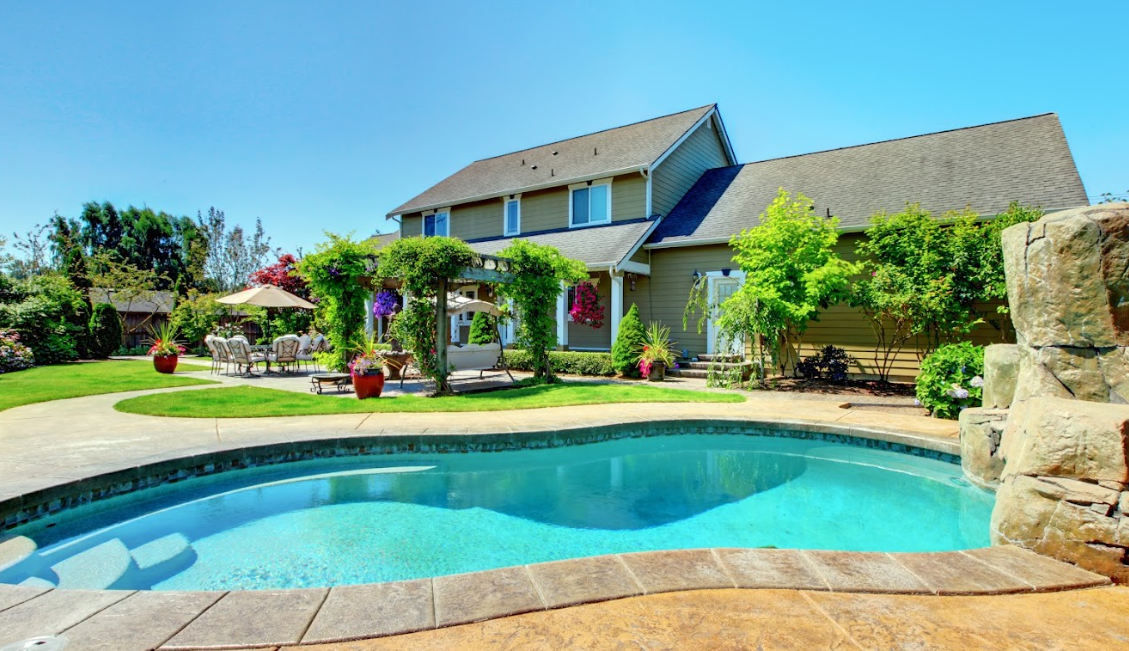The summer heat is brutal, leading to sunburn, heat exhaustion, and headaches if you’re not careful. The heat and blazing sun also take a toll on your house. Use these tips to prepare your home for summer and the intense weather it brings.
1. Schedule Your Summer AC Service
The general recommendation is to have a qualified technician service your HVAC system twice a year, once before the winter and once pre-summer. Regular maintenance keeps your AC performing optimally and increases its lifespan. It also reduces the risk of experiencing issues during the summer, when having a working air conditioner is crucial.
In addition to professional maintenance, keep vents and filters clean, and replace your filter according to the manufacturer’s guidelines. Also, test your thermostat several weeks before summer’s arrival to ensure it’s working properly. Set it five degrees below your home’s current temperature and see if you hear it kick on. It should start feeling noticeably cooler within a few minutes. If it doesn’t, you’ll have time to repair or replace it before higher temps arrive.
2. Prepare to Seal Gaps Around Windows And Doors
Look around your home for any cracks or gaps that will allow cold air to escape your house or let hot air inside. Common places for unwanted air transfer are the areas around windows and doors. As your home experiences temperature fluctuations, it expands and contracts, causing separation around various joints. Therefore, make sure these spots are sealed properly.
Check the rubber seals and replace them if there is any sign of damage. Then, seal gaps using a flexible, acrylic latex caulk that is waterproof and paintable. This is also a good time to repair or replace broken windows and screens.
3. Assess Your Window Treatments
Natural light is beautiful and a fantastic and affordable way to increase the aesthetics of your home’s interior. However, during the hotter parts of the day, natural light also becomes a nuisance, raising your home’s interior temperature (and utility bills) significantly.
If you don’t have the right window coverings, you’re wasting energy and money and making your air conditioner work overtime. Install blinds, shades, or blackout curtains on windows that typically let in a lot of sun so you can block the bothersome rays and the heat when necessary.
4. Switch Ceiling Fans To Counterclockwise
Many people ignore the little switch on their ceiling fans, but this little switch makes a big difference when it comes to cooling your home. The switch enables you to adjust the rotation of the fan blades.
Whenever you run your AC, your fan should spin counterclockwise to push cooler air downward. In the winter, when you turn your AC off and fire up the furnace, flip the switch again to send your fan spinning clockwise for the opposite effect.
5. Check Your Attic Insulation
When was the last time you assessed the insulation in your attic? Having adequate insulation can drastically reduce the heat that enters your home (and keep cold air inside where you want it). Your home will feel more comfortable, and your AC won’t have to work as hard to keep things cool.
6. Maintain Your Home’s Humidity Levels
If you live in an area that experiences higher humidity during the summer, consider getting a dehumidifier to maintain the proper humidity level inside your home. Typically, indoor humidity should be between 40% and 50% to avoid creating a favorable environment for things like dust mites and mold.
7. Prepare Your Yard
Before it gets too hot, prep your garden and yard for summer. Aerate your lawn using a garden fork or rent an aerator to create small holes throughout your yard. The holes allow water to penetrate more deeply and easily, so your lawn stays properly hydrated throughout the summer.
Additionally, clean up around your property and in your gardens. Remove clutter, debris, old mulch, and other items that attract pests and critters. Eliminate standing water around your property, since stagnant water is a popular breeding ground for mosquitoes. Use a pump to circulate water in fountains and ponds.
Check out our other home improvement blogs, here: https://cbhre.com/category/homeimprovements
Want design inspiration for your home? Visit: https://cbhre.com/category/design
Take a look at other Tips & Tricks for your home, here: https://cbhre.com/category/tipstricks

 Facebook
Facebook
 X
X
 Pinterest
Pinterest
 Copy Link
Copy Link






